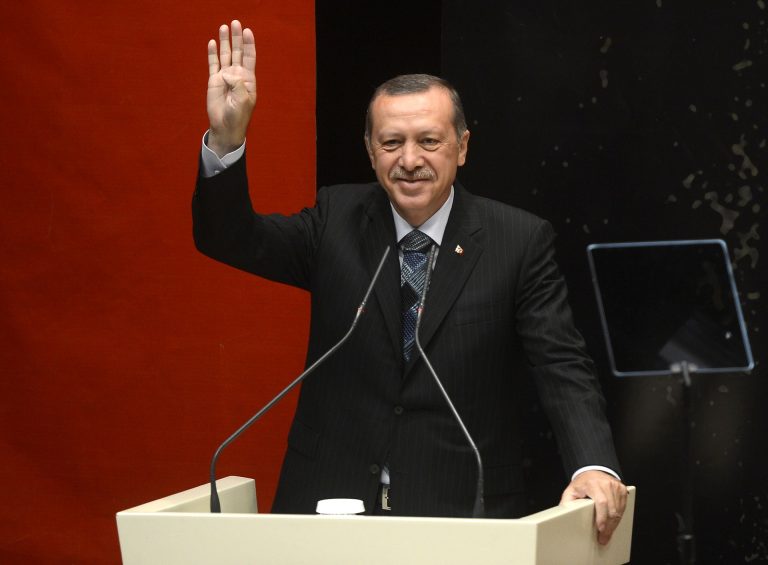With inflation soaring and the value of the lira plummeting, many experts believe that Turkey could be headed towards a full-scale financial crisis. Having lost more than 40 percent of its value against the U.S. dollar this year, the lira has been labeled as one of the worst-performing emerging market currencies.
On Dec. 20, Turkish President Recep Tayyip Erdogan unveiled a series of measures to bolster the economy and protect local savings from market-related fluctuations. However, Erdogan maintained that he would continue with his policy of lower interest rates despite rising consumer prices. According to the Turkish president, the policy which sent the lira tumbling was part of a productive “economic independence war.”
In his speech on Monday, Erdogan said that holders of lira deposits would be compensated if they incurred losses should the lira’s descent against hard currencies go beyond the interest rate offered by banks.
“From now on, our citizens won’t need to switch their deposits from Turkish lira to foreign currency, fearing that the exchange rate will be higher,” he said.
Erdogan also said that the Turkish government would make arrangements to help exporters. He added that contributions to private pensions would be raised from 25 to 30 percent.
Success
You are now signed up for our newsletter
Success
Check your email to complete sign up
The Turkish central bank, under pressure from Erdogan, has lowered its benchmark policy rate by 500 basis points in spite of the inflation sitting at 21.3 percent, causing the lira to plunge to all-time lows.
This has, in turn, led to a weakening in the purchasing power of common Turks and has eroded the value of their savings To safeguard wealth, many Turks have resorted to purchasing foreign currencies and gold.
Imported products, fuel, and everyday goods are becoming more costly. Securing basic needs like food is proving hard in the country of over 83 million people. In recent weeks, many pensioners and working-class people were seen queuing in front of municipality stalls to get subsidized bread.
Economists across the world are in consensus that high lending rates reduce inflation as they prompt consumers to save and curtail business expenditure. However, Erdogan has held to his unconventional belief that high rates cause inflation. The president maintains that his “new economic model” will augment investments, employment, exports, and growth.
When Erdogan was the prime minister in 2011, inflation was at four percent. The Turkish president has promised that he would bring inflation to that level again. However, most economists have called his policies reckless and expect inflation to go beyond 30 percent next year.
Refet Gurkaynak, a professor of economics at Ankara’s Bilkent University, considered the new measure as “in effect, a powerful interest rate hike.” In an interview with FT, he said that it could make the lira stable but also warned of “dangerous consequences.”
Turkey’s government is “clearly determined to stay on course set by President Erdogan who insists that Turkey must change its economic model by lowering interest rates significantly to reduce its reliance on foreign capital,” Piotr Matys, an analyst at InTouch Capital, told CNBC.
The country’s largest business group TUSIAD appealed to the government to abandon its current policy and revert to “rules of economic science.” Protests have erupted in Istanbul and other cities over the increased cost of living. Opposition parties are calling for immediate elections.














